Nepal has achieved significant development progress. Over the years, Nepal connected millions of people to energy, roads, water, and telecom services. The World Bank Group’s International Development Association (IDA) has been a trusted partner in Nepal’s development story for 60 years. Going forward, IDA will be critical to support Nepal’s homegrown green, resilient, and inclusive development (GRID) agenda for the country’s sustainable and inclusive growth.
Get Started for FREE
Sign up with Facebook Sign up with X
I don't have a Facebook or a X account

 Your new post is loading... Your new post is loading...
 Your new post is loading... Your new post is loading...
From
www
In the Sahel, adaptive social protection has proven to have strong positive impacts on household well-being, society, and the economy. It is a very profitable investment, reducing poverty and food insecurity, and contributing to greater productivity among the poorest. It enables governments to invest in systems and programs that help households improve their livelihoods, be more prepared to address climate change challenges, and better cope with shocks when they occur and afterwards.
Graham Watson's insight:
This World Bank clip looks at adaptive social protection as a way of fostering resilience against climate change and promoting sustainable development.
Adaptive social protection has four main pillars - essentially the development of social safety nets that are predicated upon tying this to schemes to enhance human capital. As a result, some of the poorest people in the world might be able to break out of the poverty cycle.
alexavegas857@gmail.com's comment,
June 10, 7:06 PM
ALEXAVEGAS ✅ SITUS TERPERCAYA ✅ LINK DAFTAR | LOG IN | ALTERNATIF ✅ RTP ✅ SLOT ✅ CASINO ✅ TOGEL ✅ 2024 ✅ 2025 ✅ THAILAND ✅ MALAYSIA ✅ INDIA ✅ FILIPINA ✅ INDONESIA ✅
✅ Link Daftar ALEXAVEGAS �https://bit.ly/alexavegas88 ✅ Link Log in ALEXAVEGAS �https://tinyurl.com/Alxvegas PROMO SPESIAL CASHBACK DAN ROLINGAN BONUS BEBAS BUY SPIN, BERLAKU UNTUK SEMUA PROVIDER GAME. TIDAK ADA BATASAN KEMENANGAN / WD. ✅ Minimum Deposit 5RB ✅ Tidak ada batasan kemenangan ✅ Pilihan metode deposit : BANK / E-WALLET ✅ Auto Payment untuk memudahkan deposit. SALAM JP & MAXWIN
From
www
In the heart of the Indo-Gangetic Plain, Bihar, India struggles with severe air pollution, with smoke from traditional wood and cow dung burning stoves being a major contributor. Despite progress in adopting cleaner fuels like LPG and biogas, many impoverished households still rely on these polluting methods. This video sheds light on the innovative efforts of women-led Self Help Groups (SHGs) to introduce improved stoves, reducing health risks for women and children and cutting down on Bihar’s ambient air pollution.
Graham Watson's insight:
Another World Bank clip, this time looking at how the adoption of cleaner stoves enhances standards of living in poor rural provinces, such as Bihar. An example of how development can be associated with a reduction in harmful negative externalities, such as air pollution.
Exclusive: level at highest in more than 30 years, say campaigners, who want ‘rapid and effective’ relief scheme
Graham Watson's insight:
It seems that the rate of debt payment for less economically developed countries has reached a 30 year high, especially for those most vulnerable to climate change. The charity Debt Justice estimates that these countries are paying 15.5% in government revenues to external creditors, compared to 8% pre-Covid and 4% in 2010.
Such a rise in debt interest payments has a significant opportunity cost.
From
www
Singapore has transformed itself from a colonial trading port to a buzzing financial centre in just a matter of decades. It’s been held up as an example of how small countries can seek a pathway to rapid growth and development. So what’s the city-state’s formula for success? And as Lawrence Wong takes over from Lee Hsien Loong as prime minister, what must he do to maintain it?
Graham Watson's insight:
The Singapore story: how has Singapore grown so rapidly, overtaking the UK and the US in terms of per capita GDP? This Bloomberg clip highlights how its location, and the classic approach of moving up the value chain from labour intensive manufactures to higher value-added activities, which these days means financial services and the tech sector.
However, it's debatable whether this approach can easily be replicated in other locations.
Chief economist says common framework has failed to provide any new money to world’s poorest countries since it was set up in 2020
Graham Watson's insight:
The Chief Economist of the World Bank has gone public in stating that the G20's scheme for providing debt relief to developing economies has singularly failed to provide any meaningful funds since 2020.
It appears that the failure to include China and private bondholders in negotiations means that it is difficult to reach agreement on providing debt relief. That said, it seems slightly odd that his equivalent figure at the IMF has a contradictory position arguing that it's helped Ghana and Zambia out of debt crises.
Brazilian president Lula’s proposals have the backing of the World Bank. Now we need action
Graham Watson's insight:
Larry Elliott argues that the G20 are showing signs of committing to tackling extreme poverty in the years ahead, arguing that poverty reduction is going to require both public and private sector investment, with the former crowding in the latter.
However, without a concerted effort to improve infrastructure and improve public finances in developing economies and go some way to getting closer to achieving the Sustainable Development Goals (SDGs) by 2030. At present, we're going to fall well short in relation to both extreme poverty and zero hunger.
From
www
As the global climate crisis escalates, its devastating impacts on human health and well-being will also accelerate. No one anywhere around the globe is beyond its reach, though millions of people – notably, women, children, the elderly, ethnic minorities, people with pre-existing health conditions, and those living in poverty – are among the most vulnerable. Unabated climate change is also expected to make the global goal of poverty reduction even more challenging to reach. A recent World Bank study estimates that climate change may push an additional 132 million people (more than half of whom live in Sub-Saharan Africa and South Asia), into extreme poverty by 2030, with 44 million of these driven by health impacts. In Madagascar, this World Bank project helps lifts people out of extreme poverty with cash transfers, nutrition services and skills training.
Graham Watson's insight:
This clip looks at how World Bank interventions in southern Madagascar are helping some of the world's poorest people cope with the threat of climate change: improving food security and healthcare, and tackling extreme poverty in the region.
Around the world, women and girls are disproportionately affected by lack of access to clean water, sanitation and hygiene. In Papua New Guinea, only 40% of people have access to safe drinking water, one of the lowest rates in the Pacific Islands. Women and girls of school age generally assume the burden of water collection for their families. The World Bank is supporting the Papua New Guinea Government improve access to clean water in towns like Bialla in West New Britian and Bulolo in Morobe Province. The PNG Water Supply and Sanitation Development Project is funded through the International Development Association (IDA), the World Bank’s fund for the world’s most in-need countries.
Graham Watson's insight:
The importance of access to clean water is an important part of development, and it has significant gender-based implications too, with girls far more likely to be involved in water collection than boys. As a result, they often miss school, lowering their human capital and leaving them stuck in the poverty trap.
This World Bank clip shows how one project in Papua New Guinea is enabling communities to overcome this disadvantage.
From
www
Much of Senegal’s domestic rice is produced in the Senegal River Valley, where cousins Ndobou Sene Fall and Aby Diop cultivate rice and other crops on a rust-red, 10-hectare field in the rural village of Mboundoum Barrage. As in the other rice-growing areas of Senegal, crops are planted in carefully irrigated rows of soil rather than in watery rice paddies. Empowering women rice farmers with access to finance and training is key to strengthening Senegal’s food security, according to Sérgio Pimenta, IFC Regional Vice President for Africa. "Agriculture is Senegal's main driver of economic growth, and IFC is committed to supporting the agriculture and rice value chains in Senegal."
Graham Watson's insight:
Lots of interesting little contributory factors to economic development in this IFC clip: female participation - and their importance to the labour force, food security and the returns to investment in female education and training and, the positive externalities that this helps generate.
A lovely example of how development economics can simultaneously be both simple and complex.
Nigeria is experiencing its worst economic crisis in a generation, leading to nationwide protests.
Graham Watson's insight:
This article looks at the current state of the Nigerian economy - with inflation running at 30%, the naira having depreciated by two-thirds, with the pegging of the naira to the dollar having been abandoned and many households facing a cost of living crisis.
However, whilst President Tinubu is bearing the brunt of the blame, it's arguably the case that he's being blamed for the sins of his predecessors.
Prior to being scrapped, Nigeria's fuel subsidy accounted for 15% of government spending, more than was spent of education and healthcare. Equally, the pegging of the currency had a significant opportunity cost. Additionally, the previous Buhari government had stoked inflation by asking the central bank for a $19billion loan - financed by printing money.
As a result, the Tinubu camp are arguing that drastic measures, and a period of suffering are necessary to allow the economy to recover, and that greater emphasis on the free market will pay substantial dividends in future.
The unprecedented water crisis is putting millions of lives around the world at risk. We need sustainable water resource management to address the rising challenges and provide a water secure world for all. The World Bank, with support from the Global Water Security and Sanitation Partnership is fast tracking water action and has provided water for close to 30 million people. Discover how strategic partnerships play a key role.
Graham Watson's insight:
Water is a scarce resource, and this World Bank clip highlights its importance to development and how climate change is imperilling this. In the short-term, a lack of access to water harms living standards and reduces agricultural productivity; longer-term many think that it will be the source of future conflict.
This clip shows how the World Bank is developing strategic partnerships to counter the likelihood of both outcomes.
Beijing must be more ready to support countries facing distress, says deputy chief economist
Graham Watson's insight:
Interesting, and important story for development economists, with the Deputy Chief Economist of the World Bank, arguing that the key to effective developing economy debt relief is going to be China's position as a creditor.
At present, 11 countries are rated as "in distress" and a further 28 are at risk of becoming so, and for all of them China's has a role to play in helping structure debt relief and improving developmental prospects. |
From
www
Francisca Endoli's business in Kibera, Nairobi boomed with the support of a smartphone. Watch Endoli's story of how digital connectivity creates opportunities for small businesses. Using a smartphone purchased through IFC-investee M-KOPA, she’s doubled business, helping to fund her children’s education.
Graham Watson's insight:
This International Finance Corporation clip shows how digital technology can help street traders in Kenya grow their business, illustrating the potentially transformative effect of such technologies.
From
www
Clean air is a classic regional public goods case, as the air flows freely across the borders. It requires collective action by the countries, cities & municipalities sharing the same airshed. In Nepal, working towards lowering vehicular emissions is one of the most efficient ways to clear the air.
Graham Watson's insight:
Another clip looking at air pollution in South Asia, this time in the small mountain kingdom of Nepal, where development has seen increased demand for transport, and more car and motorcycle use.
However, this is associated - not only with dramatic music - but increased levels of pollution and given the prevailing geography, this is problematic, generating significant negative externalities. However, by encouraging the adoption of electric vehicles and electric bikes the World Bank is helping the country overcome them.
From
www
Discover how modern technology is revolutionizing agriculture in Indonesia. The Strategic Irrigation Modernization and Urgent Rehabilitation Project is transforming the irrigation system, benefiting 350,000 farmers by enhancing water management and boosting productivity. Watch how this innovative approach is improving lives and promoting sustainable farming.
Graham Watson's insight:
Lots of economic issues raised here - the importance of agriculture to developing economies, scarcity and resource management, innovation and the clever use of technology to enhance agricultural productivity, the role of the World Bank. The list goes on.
From
www
The World Bank’s Geo-Enabling Initiative for Monitoring and Supervision is an innovative program that is helping to maintain transparency and accountability in project monitoring and supervision. Digital initiatives like these can help Bangladesh achieve its upper middle-income vision.
Graham Watson's insight:
This World Bank clip looks at Bangladesh's roads, and their importance to development. Enhancing infrastructure, in boosting the supply-side is clearly a good thing - however, the schemes also employed nearly 800 rural women who have been able to save and start their own businesses, giving them the potential to break out of the poverty cycle.
Roads are essential to development - enhancing education and healthcare, as well as encouraging greater trade.
From
www
São Tomé and Príncipe is a small island country located in the Gulf of Guinea. It is covered by tropical forests, coral reefs, and impressive beaches. Extreme phenomena related to climate change, such as strong sea disturbances, coastal erosion, land collapses, and increasingly frequent river, rainfall, and coastal floods, pose a growing threat to communities, public and private infrastructure, and the country's economy.
To address these challenges, the World Bank is working with the Government of São Tomé and Príncipe to implement the West Africa Coastal Areas Coastal Adaptation Program, with the aim to enhance the resilience of coastal communities by addressing key socio-economic and environmental factors. These factors contribute to the vulnerability of populations, ecosystems, and coastal assets, making them susceptible to the adverse impacts of climate-related and man-made pressures.
Graham Watson's insight:
This World Bank mini doc looks at attempts to increase the resilience of infrastructure in the island state of Sao Tome and Prinicipe. The aim of such schemes is to counter the effects of climate change and extreme weather in this developing economy, and in doing so underpinning sustainable development.
Pressure piles on World Bank and IMF to steer countries to low-carbon transition at spring summit
Graham Watson's insight:
It seems that there's a growing acceptance of the need to provide increased quantities of aid for developing economies to help them overcome the worst effects of climate change. Sustainable development is very much on the policy agenda.
Both the World Bank and the IMF seem committed to this and it will be interesting to keep track of the next round of meetings, and the associated pledges of aid from developed economies.
From
www
Sustainable development requires sustainable financing. That is why the World Bank’s International Development Association (IDA) is working proactively and systematically with countries to help address debt risks, incentivize sustainable debt and promote creditor coordination—through its Sustainable Development Finance Policy (SDFP).
Graham Watson's insight:
This World Bank clip looks at the importance of debt, particularly sustainable debt, in promoting development. Debt can play an important role in generating the funds for investment but it needs to be carefully managed, and the role of the World Bank’s International Development Association (IDA) is to co-ordinate this, and ensure fiscal sustainability in doing so, although there are concerns that in some countries debt has grown at an unsustainable rate.
From
www
The World Bank's International Development Association (IDA) is in negotiations for a robust 21st replenishment. IDA has a longstanding track record of results, serving 75 countries with development financing that transcends. Hear from Europe-based civil society, advocates and partners why they think
Graham Watson's insight:
This World Bank clip shines a light on the International Development Association and its remit, illustrating the extent to which it can intervene to tackle a wide range of development issues: climate change, childrens' rights, healthcare and so on.
It underpins the developmental prospects of many of the world's most vulnerable and seemingly does so in a highly efficient way, generating returns of $3.50 for every $1 spent.
From
www
Our latest Back to Basics video explains the concept of inclusive growth and why it’s important for governments to reduce poverty and ensure that everyone benefits from economic growth.
Graham Watson's insight:
This simplistic clip looks at the trade-off between the need for social safety nets whilst simultaneously encouraging growth, achieving inclusive growth. It involves ensuring that tax rates are appropriate without being restrictive and balancing interventionist and market-based reforms.
Thailand faces a skills crisis, with a very large proportion of youth and adults whose foundational skills are below threshold levels, meaning they cannot perform basic reading and computing tasks and do not show tendencies to engage with others or to be open to explore new ideas. There is a need to improve the entire ecosystem of skills development, given the skills crisis is an outcome of the lifecycle investments in foundational skills, starting from early childhood until adulthood. There are many ways to improve the effectiveness, efficiency, and equity in fostering foundational skills by delivering evidence-based programs and involving emerging transformers from the public, private, and non-government sectors.
Graham Watson's insight:
This World Bank clip looks at the lack of foundational skills in Thailand, a middle income country, noting that a lack of literacy and basic digital skills means that some people lack human capital, and if it wants to develop, it will need to tackle this with the help of the World Bank.
Did you know that by 2030, more than half the world's poor people will live in fragile and conflict-affected situations? That's why the World Bank's International Development Association (IDA) provides grants and low-interest loans for these countries, making it possible for them to focus on immediate humanitarian needs while also tackling factors that drive fragility, conflict and violence.
Graham Watson's insight:
This World Bank clip looks at how the International Development Association (IDA) helps mitigate the worst effects of fragile and conflict situations, by providing grants and low-interest loans to fund humanitarian projects associated with these issues. It is particularly associated with helping refugees in these contexts.
Delivering healthcare in Papua New Guinea is a significant challenge with around 85 percent of the population living in rural and rugged terrain with limited transport infrastructure. In East New Britain province, the World Bank is supporting the provincial health authority to strengthen its primary health care system through improved data collection and communication between frontline health workers and decision-makers. Now, health workers are starting to receive greater supervision and support, and efforts are underway to prioritize budgets and policy improvements to the areas of greatest need.
Graham Watson's insight:
This World Bank clip looks at how to provide healthcare in the challenging environment of rural Papua New Guinea, with limited infrastructure. Better use of technology and the empowerment of front line workers has increased access to healthcare and with it enhanced developmental prospects. |




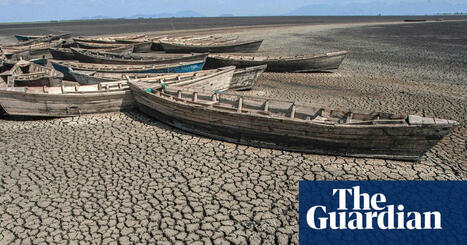
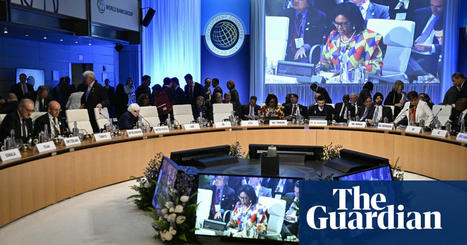
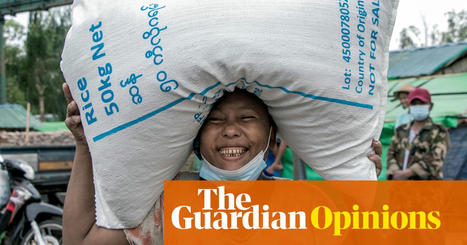
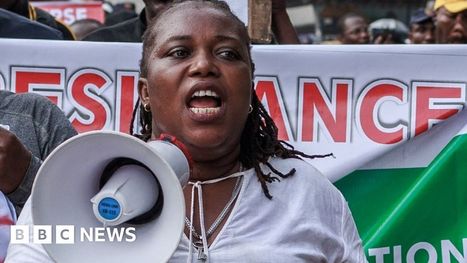
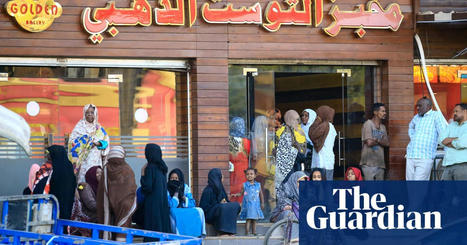
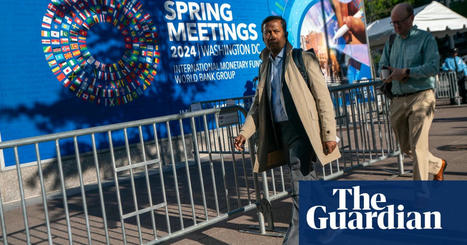





The World Bank has supported Nepalese development for the past 60 years - helping foster development in an economy which has faced natural disasters, conflict and other challenges.
The International Development Association (IDA) has funded all sorts of improvements in education, healthcare, infrastructure and renewable energy, all of which help engender sustainable development.